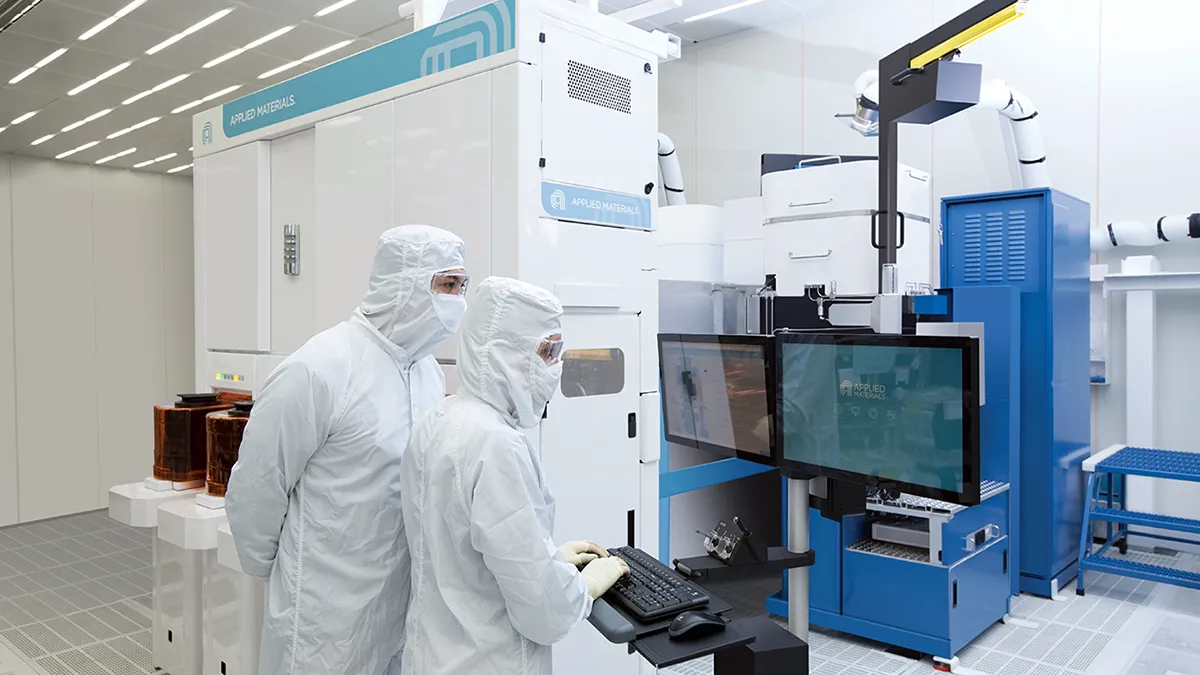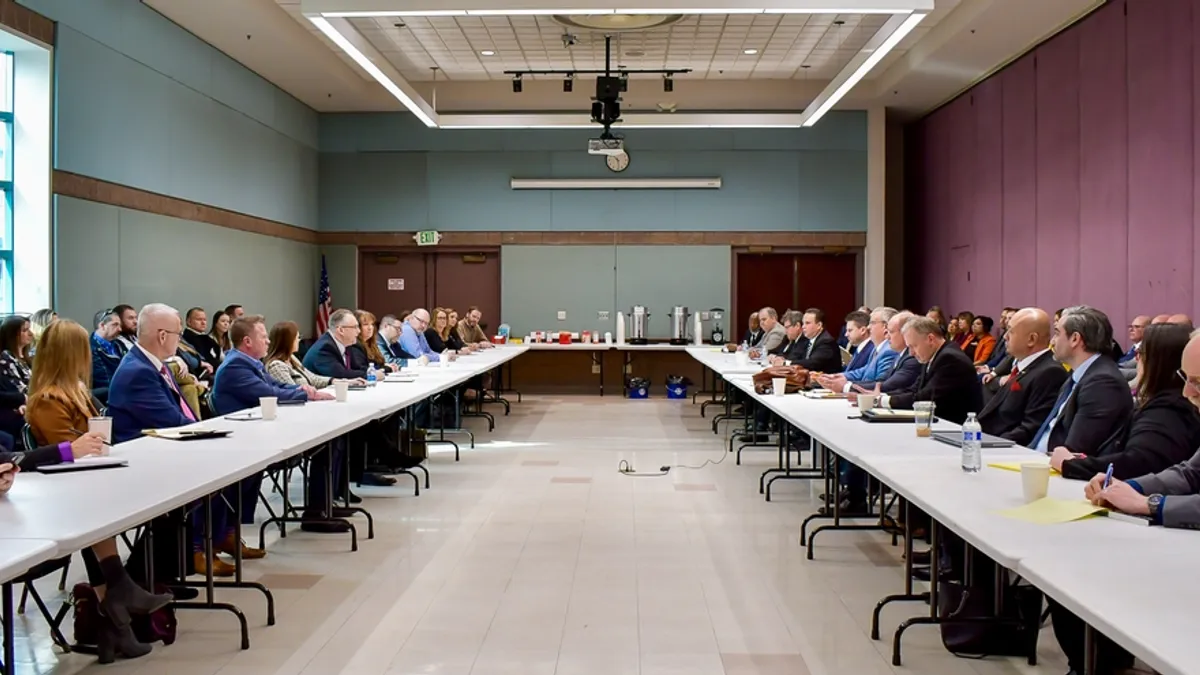Dive Brief:
- Absolics, Applied Materials and Arizona State University are set to receive up to $100 million each for semiconductor packaging manufacturing in a slew of new CHIPS and Science Act funding, the Commerce Department announced Thursday.
- The money will go towards research and development for advanced substrates. The physical platforms allow chips to be assembled together seamlessly and enhance high-performance computing capabilities for artificial intelligence, wireless communication and power electronics.
- The government expects that private investment will provide $170 million in addition to the up to $300 million in federal funding, for a total of at least $470 million.
Dive Insight:
Each recipient has robust plans for their funding as the U.S. races to gain a competitive edge in advanced semiconductor manufacturing.
Absolics will use the money to build out new capabilities in glass core substrate panel manufacturing at its headquarters in Covington, Georgia, where the company is also in the midst of building a $600 million factory. The company is slated to receive $75 million in CHIPS funding for the project.
The substrate manufacturer will work with more than 30 external partners on the project, in the hopes of creating a glass-core packaging ecosystem, an advanced form of packaging that offers improved thermal and mechanical stability.
Meanwhile, Applied Materials will use the funds to work with 10 collaborators and develop a "disruptive" silicon-core substrate technology for advanced packaging at its R&D facility in Santa Clara, California, according to the announcement. The capabilities could help further develop domestic advancements in energy efficient AI and high-performance computing.
The last recipient, Arizona State University, will focus on microelectronics packaging and fan-out-wafer-level-processing, which provides a smaller packaging footprint that creates improved thermal and electrical performance. Researchers are investigating two capabilities that do not currently exist in the U.S. — the commercial viability of 300-mm wafer-level and 600-mm panel-level manufacturing.
Arizona State University has become a national leader in advanced manufacturing education. The university launched its School of Manufacturing Systems and Networks in 2022, and in July 2023 it announced the creation of a semiconductor R&D center in collaboration with Applied Materials.
The $300 million in funds is part of a broader, $3 billion funding effort from the Biden administration to empower semiconductor packaging manufacturing in the U.S, first announced a year ago.
Semiconductor packaging advancements have become a key priority for the administration as part of its push to grow the country's domestic chip industry and unlock more advanced chips to power AI.
In February, the Commerce Department announced $300 million in funding for packaging R&D projects, and last month, the agency opened a $1.6 billion funding competition for advanced packaging technologies.












